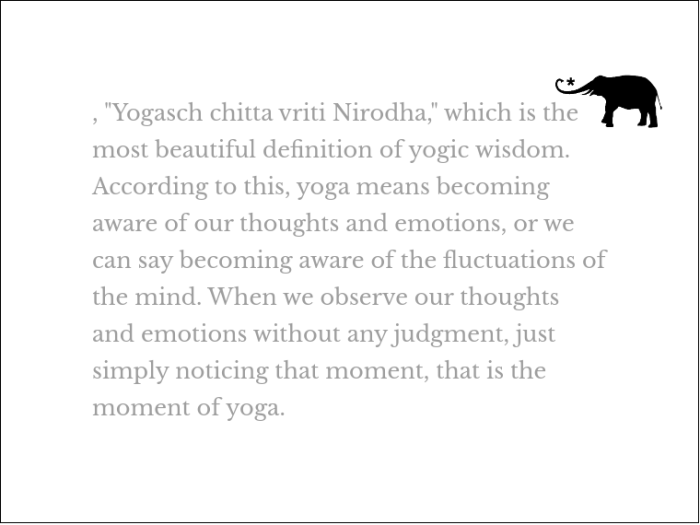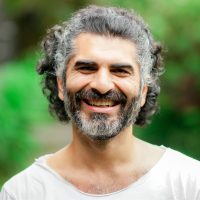While walking early morning on the “Campuhan Ridge Walk,” a beautiful pathway in Ubud Bali, I was amazed by the surrounding nature: lush green trees, sounds of birds, clear blue sky, mystical atmosphere, and a cool breeze that was lovingly caressing me.
The moment was complete and amazing in itself. My body was vibrant, mind silent, and heart full of gratitude. In that serenity, I experienced the present moment in its full glory. My eyes were full of joyful tears, and I bowed down to the rising sun, which yogis from India have been doing for centuries.
In that one moment, I understood the meaning of yoga. I remember Patanjali, the “Father of yoga,” as we regard him in India. Yogic history evidence suggests that he walked on earth almost 5000 years back. He wrote the most important book in yoga history, “Patanjali Yoga Sutras,” a book full of profound wisdom, practical key methods, and understanding to empower you in the journey of life.
As an Indian yoga practitioner and founder of Yoga New Vision who provides yoga teacher training in Bali, I can say, with my own experience, that if you genuinely want to understand yoga in the right way and in its full glory, you should read this yoga philosophy book.
This book starts with “Atha Yoga Anushansnam,” meaning “now the discipline of yoga.” The first statement gives the whole meaning of yoga. Now, yes, now, which Eckhart Tolle calls the Power of Now, Patanjali is saying that if you can stay here in this present moment, it means you are in the discipline of yoga. There is no need to do anything else.
Then he says, “Yogasch chitta vriti Nirodha,” which is the most beautiful definition of yogic wisdom. According to this, yoga means becoming aware of our thoughts and emotions, or we can say becoming aware of the fluctuations of the mind. When we observe our thoughts and emotions without any judgment, just simply noticing that moment, that is the moment of yoga.
Yoga means precisely what Buddha said – no mind. Mind means our thoughts, emotions, experiences, and all education. Our whole personality comes under the term mind, and yoga means crossing the boundary of mind and entering into pure presence.
Patanjali encourages us to take responsibility in our hands. He does not allow the yoga practitioner to be a part of victim mentality. He gives the whole methodology to handle our own mind with Ashtanga yoga (eight limbs yoga).
We can categorize the eight limbs of yoga into four categories of wellbeing:
Social wellbeing: Yam (Giving Direction to Yourself) and Niyam (Regularity and Self-Discipline)
Physical wellbeing: Asana (Psychosomatic workout to release emotional stress from the body) and Pranayama (Breathing techniques for aliveness)
Mental wellbeing: Pratyahar (Taking care of senses) and Dharana (Feeling within and listening to yourself)
Spiritual wellbeing: Dhyana (Meditation) and Samadhi (Respecting the whole world as holy and living in oneness with the universe)
This is the whole methodology of yoga, bringing all the puzzle pieces of human wellbeing together, and empowering in every direction.
As I started walking again on that beautiful morning walk, I looked at the sky and recited my compassion prayer, which I often give at the end of my yoga session in yoga teacher training courses.
“Lokah Samasta Sukhino Bhavantu.”
May all beings be happy, healthy, and free.
Yoga practitioners, yoga teachers, and yoga schools must emphasize the study of Patanjali Yoga Sutras as they are the soul of yoga. Without in-depth study of them, yoga will lose its real meaning.
Namaste









Read 0 comments and reply